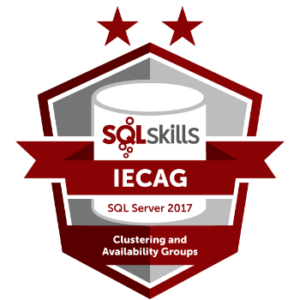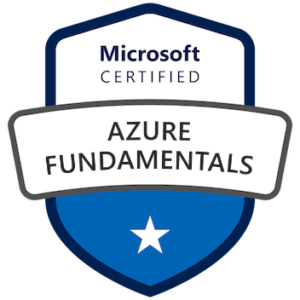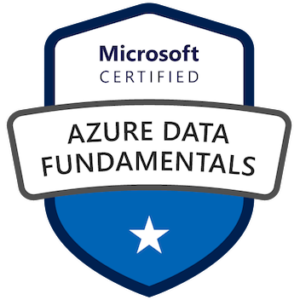How Do I Measure My DBA Skills Part 3
In this series on measuring your DBA skills, we’ve been discussing what skills you should have at each phase of your career. So far we’ve covered the entry level skills and the phase 2 skills a Production DBA needs. In this part of the series you’re discovering what a Production DBA needs to know or be able to do at each stop along the career journey. If you want career development, you need to work on these skills in order to move forward.
So what’s next after that second phase of career development for a Production DBA? Once you’re into your career about 5 or so years, what should you be reaching toward? I’m glad you asked! Let’s take a look at the skills in the next phase!
Production DBA III/Lead DBA: 5 – 7 years of Experience
- All competencies from the previous level.
- Designs backup/restore strategy.
- May participate in T-SQL development and database design of advanced complexity.
- Investigates potentially complex issues within SQL Server using native approaches, and when available and appropriate, 3rd party software, such as monitoring software. Deploys changes based on that investigation. These could be performance issues at the server level or query level.
- Implements high availability/DR solutions, often in tandem with infrastructure teams and may participate in the design of HA and DR solutions.
- Manages more complex troubleshooting scenarios for high availability and disaster recovery technologies (DB mirroring, replication, log shipping, potentially AlwaysOn Availability Groups or Failover Cluster Instances)
- Interacts with Systems Administrators or Infrastructure teams in matters of hardware, virtualization and storage, primarily concerning performance investigation.
- Regularly automates tasks using T-SQL and PowerShell.
- Demonstrates a basic proficiency with Extended Events.
- May lead SQL Server migration planning and implementation.
- Leads knowledge sharing in three or more areas from levels I, II, or III.
- Mentors Junior DBA’s.
- May possess competencies from the DEV DBA career path up to level 2.
- Demonstrates good self-awareness, self-management, social awareness and relationship management skills (emotional intelligence).
Working Independently
At this level in your career as a Production DBA your work is done in a fairly independent manner. You are capable of handling all the things from levels 1 and 2 and you’re continuing to advance your skill progression on things like design decisions for SQL Server. You’re doing more designing for things like backup/restore strategy, high availability, as well as participating in the planning of database and server migrations.
Adding More Advanced Skills
At this level you’re also adding skills with technologies like Extended Events and Query Store for troubleshooting and monitoring as well as learning how to use 3rd party software to find and troubleshoot issues in the environment. You’re getting hands on experience with more advanced troubleshooting scenarios such as problems related to AlwaysOn Availability Group or Failover Cluster Instances, log shipping, etc.
Typically, you’re doing less and less entry level work, like troubleshooting and resolving problems like SQL Agent job failures. This could be in part because you’ve been at the company for awhile and you yourself have stabilized performance for things like SQL Agent jobs or you’re working at a place that has been taken care of by another DBA in a fairly good, consistent way. Also, depending on the size of your environment and your employer you probably aren’t the only DBA at the company at this point so you may have teammates who carry at least some of the workload for phase 1 career tasks.
Sharing Knowledge as a Database Administrator
Knowledge sharing becomes more prominent in this part of your career. This teaching aspect of your skills will be across several areas of SQL Server data management based on topics and skills in phases 1, 2, or 3. Perhaps you’re directly mentoring Junior DBAs on the team. You may be giving presentations at work or maybe even your local SQL Server Users Group or a SQL Saturday on things like backup/restore functionality and design, how to automate various tasks, or maybe on something like Extended Events.
You’ll notice that there is some mention of development skills in this skills list. Now, production DBAs typically don’t do much development. However, I realize that some employers don’t have a clean break between Production and Development responsibilities for their DBAs. Sometimes an employer needs or wants an overlap of skills. I also acknowledge that your own interests might mean that you decide to work on some development tasks like writing stored procedures for some application work that is being done or maybe working on table and database design considerations.
This begins to bleed over into a category of DBA that we will cover later in the series called the Dev DBA. Again, your work environment may dictate the need for these skills or you may have an interest in being competent with some entry level Dev DBA skills. Either way, those skills may begin to show up in your career at this level.
Next Steps to Take
- Copy/paste the above numbered list to a Word doc. Think carefully about each one and whether or not you currently meet this criteria. Put an “X” next to any item you need to work on.
- For each item you placed an “X” next to, create a plan for improving skills related to that item. Are you going to watch Pluralsight videos, find resources on YouTube or read blogs about the topic? Make some decisions and a plan about your approach. Also, at this career level and higher, you need to give yourself 30-60 days for each new skill you want to learn. You won’t be working on this skill for an actual 30 days, but with everything else you’re doing in your day job, it may take you a month or more to accumulate enough time with the skill for you to gain competency.
- If you would like help with anything in this post, or with something else related to SQL Server, reach out to me here or on Twitter, and I’ll be glad to offer assistance.




